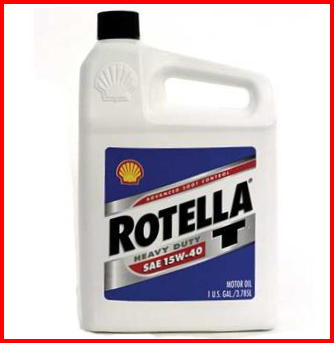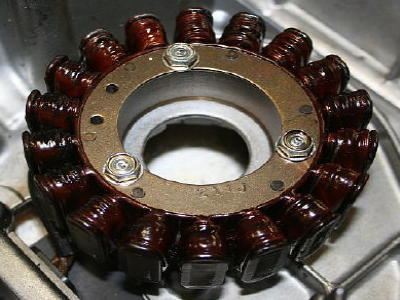My Grandfather changed the oil in his car once a month. He greased the chassis lube points on the same frequency. He always said that oil and grease were cheap insurance compared to engine repairs. Grandpa was mainly right.
But these days we have heightened awareness of “green” issues and must balance environmental concerns against the real need to protect our engines via proper oil changes. Modern automobiles incorporate sophisticated engineering refinements such as ultra precise tolerances, advanced piston ring design and clever control of crankcase ventilation that help extend oil change intervals with minimal risk. Vintage motorcycles do not enjoy such engineering.
Time tested advice: change your oil every 4 months or every 3000 miles whichever comes first. Yes, this might seem a bit overly-frequent. However, if you follow this regimen, you will never have an oil-related failure and your engine should be good for at least 250,000 miles. In my own bikes, I treat them to several oil/filter changes per year regardless of miles accumulated (typically not too many).
Main Reasons to Change Oil
Here’s a brief (non-technical) review…
1. Oil and the additives in oil gradually break down during use through thermal and mechanical action. Degradation at the molecular level reduces lubricating effectiveness. Also, the significant shearing forces generated in a motorcycle with a “shared” engine / transmission oil sump along with a “wet” clutch accelerate this effect compared to modern cars.
2. Oil’s ability to maintain proper vicosity-to-temperature calibration diminishes as the oil gets “tired.”
3. Byproducts of combustion sneak past the piston rings and begin to dilute and contaminate the oil. Ditto for imperfectly sealed coolant passages which can allow coolant to infiltrate the crankcase.
4. Microscopic coke particles accumulate in the oil. This is the main explanation for why oil darkens with use.
5. In any running engine, moving parts shed metallic particles. These microscopic particles circulate in the oil and grind against moving part surfaces causing wear. The oil filter removes a high volume of these particles, but eventually the oil filter can become overwhelmed.
6. Neglected oil inevitably breaks down over time and begins to oxidize. That’s a bad development as the additives will separate, morph and solidify. This forms one of your engine’s worst enemies: sludge.
For these reasons, the oil and filter need to be changed on a regular, religious basis.
The purpose of this Tech Tip is to call your attention to a less well known reason the change your oil.
As oil ages past its useful service life, harmful acids and other “nasties” build in the oil. These acids have been implicated in stator failures in vintage motorcycles.
Our motorcycles don’t have external auto-type alternators. Instead, vintage Hondas have fixed, internal stators that typically live in a “wet” environment…constantly splashed by engine oil. This is a good design in that the oil splash helps keep the stator windings cool, but worn out motor oil is thought by some to be a contributing factor in premature stator failure.
It is thought that the acids can deteriorate the thin, insulating coatings on the windings causing them to fail and produce open circuits, short circuits and inappropriate short circuits to ground. Any of these problems can take out one or more phases of your stator.
Stator replacement on an early ‘Wing requires engine removal and partial engine disassembly. It’s a very time-consuming task and very expensive if you’re paying for someone else’s labor.
Do yourself and your bike a favor: keep fresh oil in your bike!
Type of Oil to use?
Oil recommendations are inherently controversial. If you change your oil often (as you should) most modern oils are OK. Generally – any fresh oil is better than the most expensive oil past its useful life!
You can’t go wrong with Honda, Kawasaki, Suzuki, Yamaha or other brand of motorcycle-specific, conventional motor oil. The recommended viscosity is 10W-40. Do NOT use modern automotive oil – friction modifiers added to improve gas mileage make it is too slippery and may cause problems with your wet clutch.
I don’t recommend synthetic oil or synthetic blends because they are not necessary.
Universal Oils?
If you insist on using oil that is not spec’d for motorcycles, a very good choice is conventional Shell Rotella-T (15W-40).
 Shell Rotella-T Conventional Motor Oil
Shell Rotella-T Conventional Motor Oil
This is a so-called “universal oil” which is primarily marketed for diesel use. This oil has high pressure zinc and phosphorus additives which are beneficial to the transmission gears which share the crankcase oil. It does not have any harmful friction modifiers that can harm a wet clutch. Note that not all diesel oils are classified as “universal oil.”
Shell Rotella-T (conventional 15W-40 grade) also meets the strict standards issued by the Japanese Automotive Standards Organization for motorcycle usage (JASO-MA). Shell Rotella-T is available at most mass merchandisers (like Wal-Mart) at a very attractive price. This is the oil I use in all my bikes these days.
Per Shell Tech Expert – 4/16/2010:
Hello Randall:
Yes, the latest API CJ-4 Rotella products meet JASO MA in these grades: Rotella T 15W-40 and T6 Synthetic 5W-40. In fact, I have the Rotella T6 5W-40 in my Honda GL1100I along with your carb rebuid kit!
Data sheets available at https://www.epc.shell.com/ – search for “Rotella.” These sheets indicate JASO MA.
Regards,
Keith Perry
Shell Technical Information Center
(800) 237-8645
When you change your oil, be sure to recycle the old oil in a responsible fashion.




Apart from my fab 1975 GL1000, I run a few older bikes, one being a 1942 WLC45. I have always changed the oil in this every 1000 miles and I do so even with the Honda. Now I know it sounds like overkill, but the inside of those motors are as good as new, and I know the motors are saying thank you every time I go out. Well done Randakks, keep up the good work, hugs from us in New Zealand, John.
Thanks for the good report!
Dude, I ride my GL1000 about 1000 miles per month. Your motors say “Thank you” because you ask nothing of them 🙂
I use Castrol Motorcycle Oil 20w50 the previous owner used this oil. It worked for him and works great for me. Ive also used Quakerstate 20w50 it worked well to as long as you change your oil often like every 4 months. I learned along tome ago a bike is like a airplane matenance matenance.
I try to change mine based on the calendar, not so much miles. Our season is 6 months and I have a few bikes to ride. Twice a year is average for the gl1000. Rotella 15-40, my oil smells like gas more than any other motor I’ve serviced. Will see if the carb rebuild over the winter stops that.
My sons used to race 2-stroke go karts and I was the mechanic. I can attest that Castrol is the very best engine oil for those karts in terms of racing performance. Castrol made a measurable improvement in laps times, second only to new tires.
Honda CB900C has different oil in transmission, so changing engine oil will not affect gear changing smoothness.
Correct. The very odd American-spec CB900 Custom has a convoluted transfer drive arrangement with a two-speed secondary transmission. Power is routed to the rear wheel via driveshaft. The separate transmission is a stout piece with its own oil supply and a small pump to keep its bevel gears lubricated. Splash takes care of the transfer gears’ lube requirements.
I second the Rotella T recommendation as a quality motor oil. I’ve found it to operate more quietly in my ’82 CB900C than Honda’s proprietary oil or Castrol GTX, and my experience is that of those three oils, Rotella also helps my bike to shift more easily when new, and holds its shifting advantage for a longer mileage interval. In fact, my particular bike tends to develop a false neutral between 3rd and 4th gear that signals when the oil needs changing. Rotella tends to last 500-700 miles longer than Honda and Castrol in my experience.
As a 15-year veteran of the trucking industry, I’ve noticed that there’s a rapid increase in emissions technology in large diesel engines, including (and most significantly) exhaust aftertreatment technology. Based on the direction that diesel engine technology is advancing, I’ll be watching to see how Shell adapts Rotella T for future technologies. My understanding is that zinc doesn’t play well with catalytic converters, so if diesel technology moves in that direction (as yet uncertain), then Shell may have to take the zinc content out and replace it with some of the “friction modifier” additives that don’t play well with motorcycle wet clutches. Just something to keep an eye out for.
I also use Rotella t4 on my GL1000, but want to change away from it for a while. The Rotella seems to get dirty rather quickly, and my pipes are carbon’d up, too. To contrast, using Castrol on my V8 4-Runner, the oil is still rather clear after nearly 10,000 miles (synthetic with 20,000 mile filter)